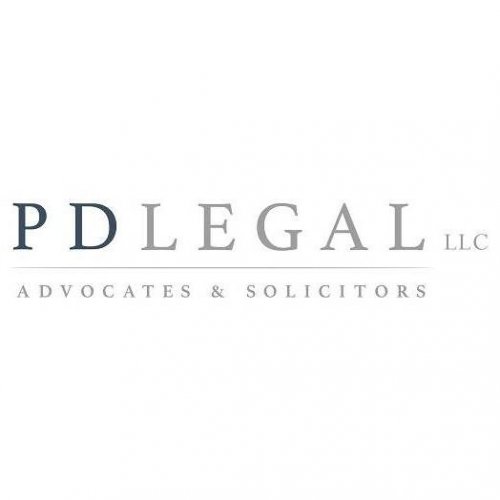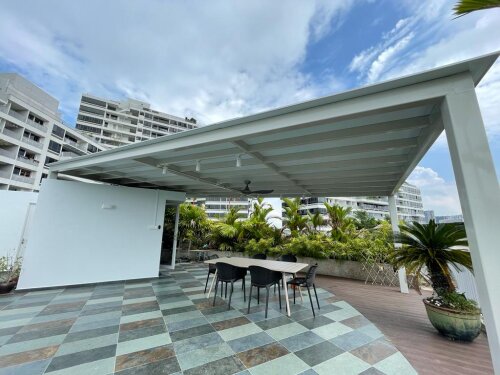Best Renewable & Alternative Energy Lawyers in City Hall
Share your needs with us, get contacted by law firms.
Free. Takes 2 min.
List of the best lawyers in City Hall, Singapore
About Renewable & Alternative Energy Law in City Hall, Singapore
Renewable and alternative energy law in City Hall, Singapore pertains to the rules and regulations that govern the generation, distribution, and use of renewable and alternative energy sources within the city area. This includes solar, wind, biomass, and other emerging clean technologies that reduce reliance on fossil fuels. The regulatory landscape in Singapore is shaped by national objectives to achieve sustainable development, reduce greenhouse gas emissions, and encourage innovation in energy infrastructure. Legal frameworks are in place to support both individuals and businesses seeking to participate in the renewable energy sector, from installing solar panels on buildings to launching large-scale alternative energy projects.
Why You May Need a Lawyer
The renewable and alternative energy sector is complex and highly regulated. Legal advice may be necessary in several situations, including:
- Negotiating or drafting contracts for supply, installation, or maintenance of renewable energy systems
- Obtaining licenses or permits for energy generation or distribution
- Understanding tax incentives or government grants available for renewable energy projects
- Navigating land use, zoning, or environmental compliance requirements
- Resolving disputes between contractors, suppliers, or regulatory agencies
- Managing intellectual property relating to new energy technologies
- Ensuring compliance with local and national regulations
- Assessing liability or insurance risks related to renewable energy installations
- Facilitating joint ventures and partnerships in clean energy initiatives
- Addressing property rights related to solar access or energy grid connection
Local Laws Overview
In City Hall, as part of the central area of Singapore, renewable and alternative energy initiatives are subject to several local and national laws:
- Singapore’s Energy Market Authority (EMA) regulates electricity generation, licensing, and grid connection for renewable sources.
- Solar panel installation must comply with Building and Construction Authority (BCA) safety codes and urban development guidelines.
- The Carbon Pricing Act and related policies encourage emission cuts and set out obligations for certain energy-intensive activities.
- Green Mark Scheme by the Building and Construction Authority promotes environmentally friendly building designs, often including renewable energy features.
- Urban Redevelopment Authority (URA) governs land use and may provide additional guidance on installing renewable systems on heritage or high-density buildings typical in City Hall.
- Incentives and grant schemes such as the SolarNova programme and Enterprise Singapore’s funding initiatives aim to boost renewable energy adoption in urban sectors.
- International treaties and agreements may also affect large-scale clean energy projects, especially those with cross-border energy transmission.
Legal compliance is essential in every stage, from feasibility studies to project commissioning and daily operations.
Frequently Asked Questions
What types of renewable energy are commonly used in City Hall, Singapore?
The most popular option in City Hall is solar power due to the dense built environment suitable for rooftop installations. Other alternatives like biomass or small-scale wind may have limited application in densely populated city areas.
Do I need government approval to install solar panels in City Hall?
Yes, installing solar panels requires submitting plans and obtaining permits from the Building and Construction Authority, and depending on the building type, you may also need clearance from the Urban Redevelopment Authority or the relevant managing agency.
Are there government incentives for renewable energy adoption in Singapore’s city center?
Yes, several government schemes such as SolarNova and others provide funding or tax incentives to encourage the adoption of solar and other renewable energy solutions.
What are the key considerations for businesses looking to generate renewable energy in City Hall?
Businesses must consider land or rooftop rights, grid connection rules, licensing with the Energy Market Authority, safety standards, and the commercial viability under local regulations.
How can residents benefit from renewable energy in their condominiums or HDB flats?
Residents can participate in collective solar initiatives, benefit from lower utility bills, and contribute to sustainability targets. However, approvals from management bodies or HDB are often required.
What legal risks are involved in renewable energy projects?
Risks can include contract disputes, regulatory non-compliance, property rights issues, potential liabilities arising from equipment failure or installation defects, and environmental compliance concerns.
How does Singapore’s carbon tax affect renewable and alternative energy projects?
The carbon tax incentivizes a shift to cleaner energy sources, providing a commercial edge to renewable energy projects while mandating reporting and compliance for emissions-intensive activities.
Is energy generated from renewables in City Hall allowed to be sold back to the grid?
Yes, under the Enhanced Central Intermediary Scheme and with EMA’s guidelines, energy generated can be exported to the grid, subject to technical and regulatory compliance.
Are there special legal provisions for buildings in conservation or heritage areas?
Yes, installations in heritage or conservation zones may face stricter guidelines by the Urban Redevelopment Authority and require additional approvals on top of standard processes.
Can businesses or individuals face penalties for non-compliance with renewable energy laws?
Yes, violations of installation, safety, licensing, or environmental requirements can result in fines, suspension of operations, or mandatory corrective actions.
Additional Resources
Several resources and institutions can help you navigate renewable and alternative energy laws in City Hall, Singapore:
- Energy Market Authority (EMA) - for licensing and regulatory guidelines
- Building and Construction Authority (BCA) - for construction codes and safety standards
- Urban Redevelopment Authority (URA) - for land use and building regulations
- Enterprise Singapore - for innovation support and grant schemes
- National Environment Agency (NEA) - for environmental compliance resources
- SolarNova Programme - for information on solar deployment, especially for government buildings
- Singapore Green Building Council - for green certification and building standards
- Professional associations for lawyers specializing in energy and environmental law
Next Steps
If you require legal assistance with renewable or alternative energy matters in City Hall, Singapore, consider the following steps:
- Clarify your project scope and identify the specific legal issues you may face
- Gather relevant documents, such as building plans, contracts, and correspondence with government agencies
- Contact a qualified lawyer specializing in energy, environmental, or construction law, preferably with experience in Singapore’s local context
- Prepare a list of questions or concerns to ensure a productive first meeting with your lawyer
- Consult governmental bodies or professional associations for further guidance if needed
- Stay updated on local regulations, as the renewable energy legal landscape continues to evolve in Singapore
Taking proactive steps and seeking professional legal advice can help ensure your renewable or alternative energy project in City Hall, Singapore is both compliant and successful.
Lawzana helps you find the best lawyers and law firms in City Hall through a curated and pre-screened list of qualified legal professionals. Our platform offers rankings and detailed profiles of attorneys and law firms, allowing you to compare based on practice areas, including Renewable & Alternative Energy, experience, and client feedback.
Each profile includes a description of the firm's areas of practice, client reviews, team members and partners, year of establishment, spoken languages, office locations, contact information, social media presence, and any published articles or resources. Most firms on our platform speak English and are experienced in both local and international legal matters.
Get a quote from top-rated law firms in City Hall, Singapore — quickly, securely, and without unnecessary hassle.
Disclaimer:
The information provided on this page is for general informational purposes only and does not constitute legal advice. While we strive to ensure the accuracy and relevance of the content, legal information may change over time, and interpretations of the law can vary. You should always consult with a qualified legal professional for advice specific to your situation.
We disclaim all liability for actions taken or not taken based on the content of this page. If you believe any information is incorrect or outdated, please contact us, and we will review and update it where appropriate.










